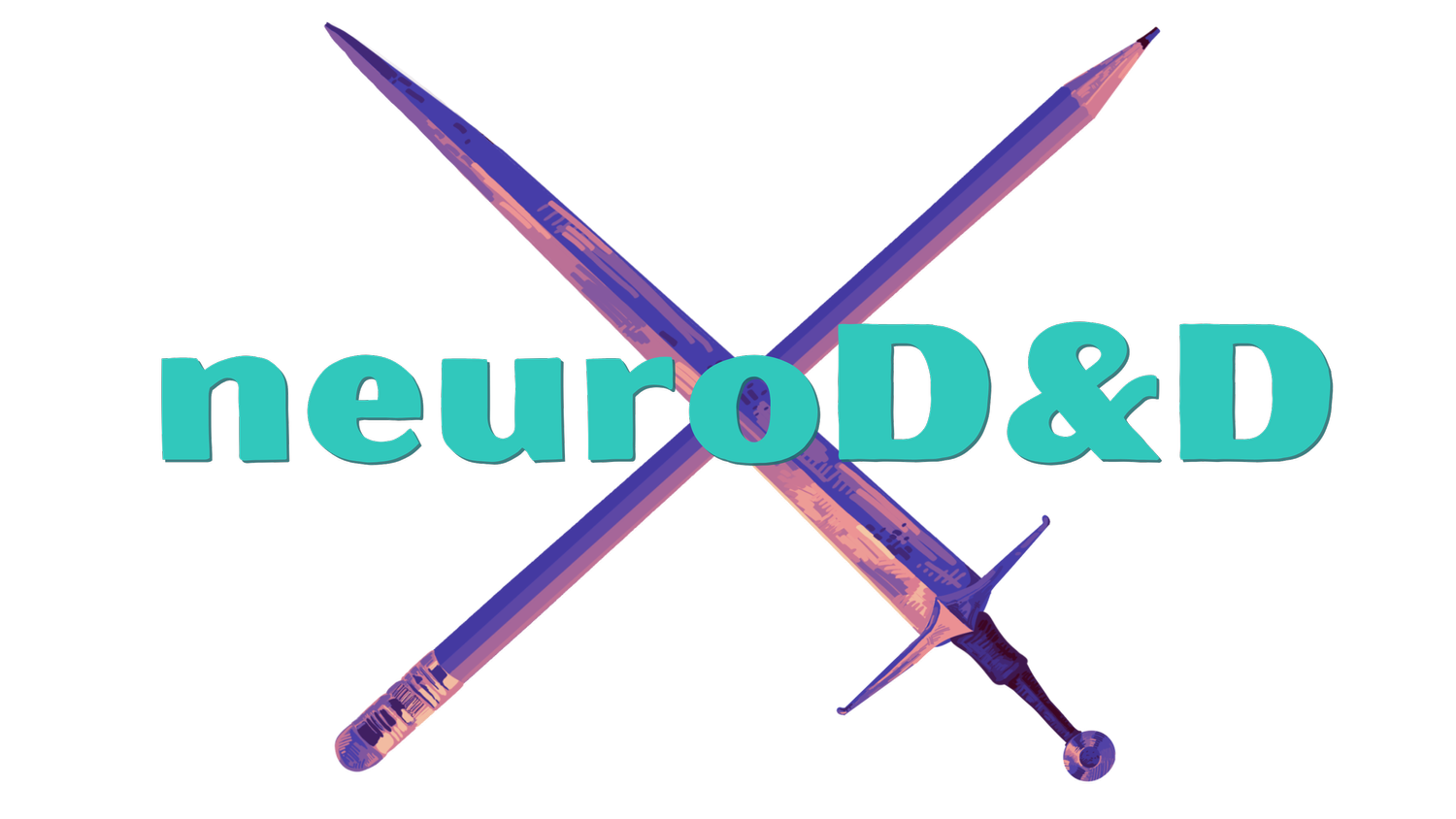
Why Tabletop Gaming?
“If you have autism and you don’t feel like you fit in, then you know you’re obviously gonna relate to a hero’s journey story where someone doesn’t fit in and then they find out that ohh… they have magic powers. And you think ‘wouldn’t it cool if what was different about me was actually, you know, really awesome.”
-Atherton, et al. 2024
Communication is key!
Dungeons & Dragons isn’t just about swords and sorcery – it’s also a cooperative game that emphasizes communication between players. In NeuroD&D games, we structure communication to be purposeful and rewarding – which increases the likelihood of players interacting with their peers.
→ Players will practice and flex their creativity to progress the narrative through caves, castles, and terrain, all while working together and compromising.
Screen-free gaming and socialization
In person campaigns are screen-free. Close those laptops, grab your dice, gather your party, and adventure with others!
ABA and Dungeons & Dragons
ABA focuses on observable behaviors, measurable goals, and learning skills that can be generalized to all environments.
NeuroD&D
Creates individualized goals
Custom built narratives that target pivotal areas
Measures social progress
Analyzes player progress
Token boards and goal sheets are out: we strive to create a game that is intrinsically motivating to all players! Work together to storm castles, loot pirate ships, delve into the deepest dungeons, and find lost treasure.

